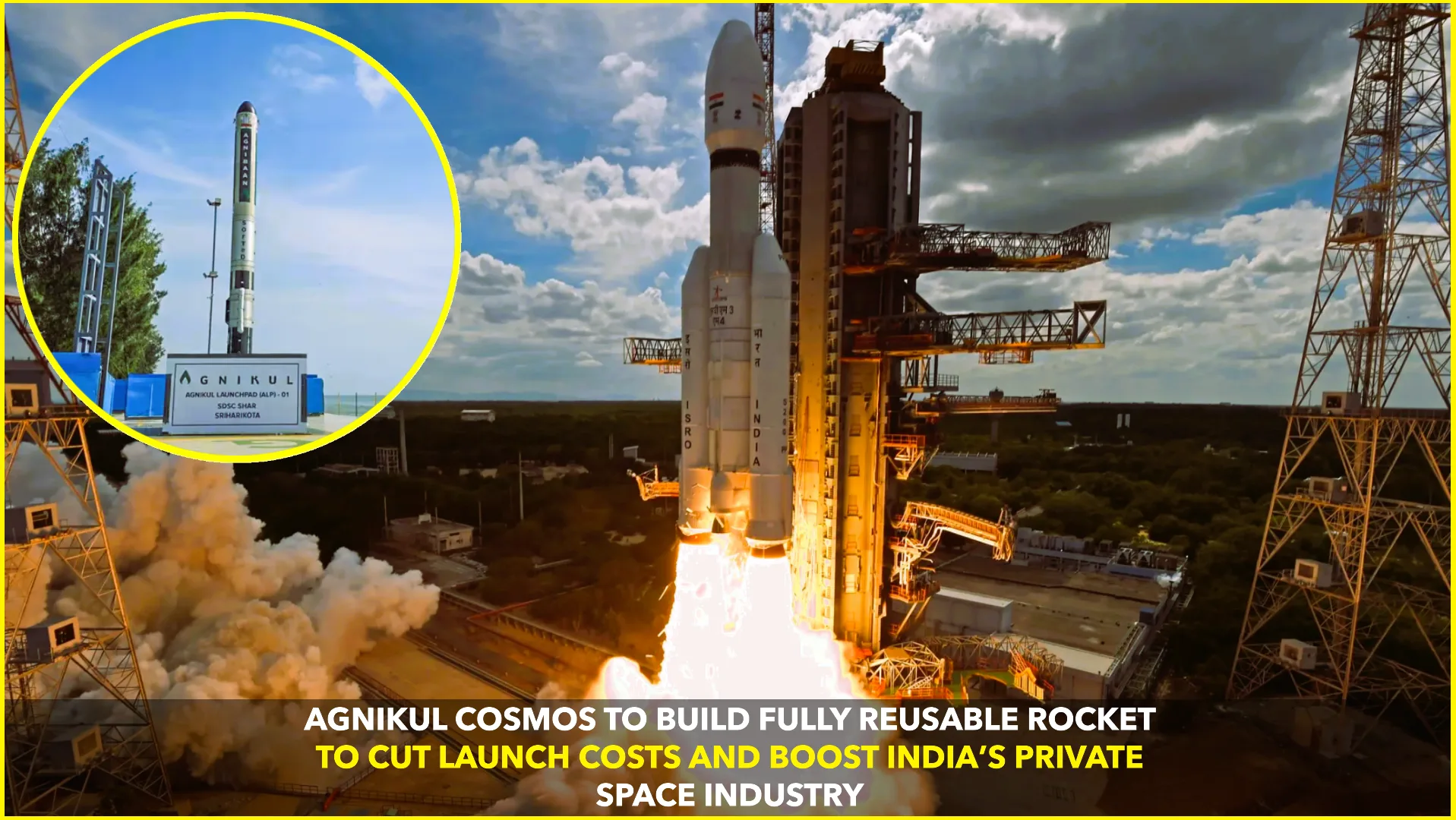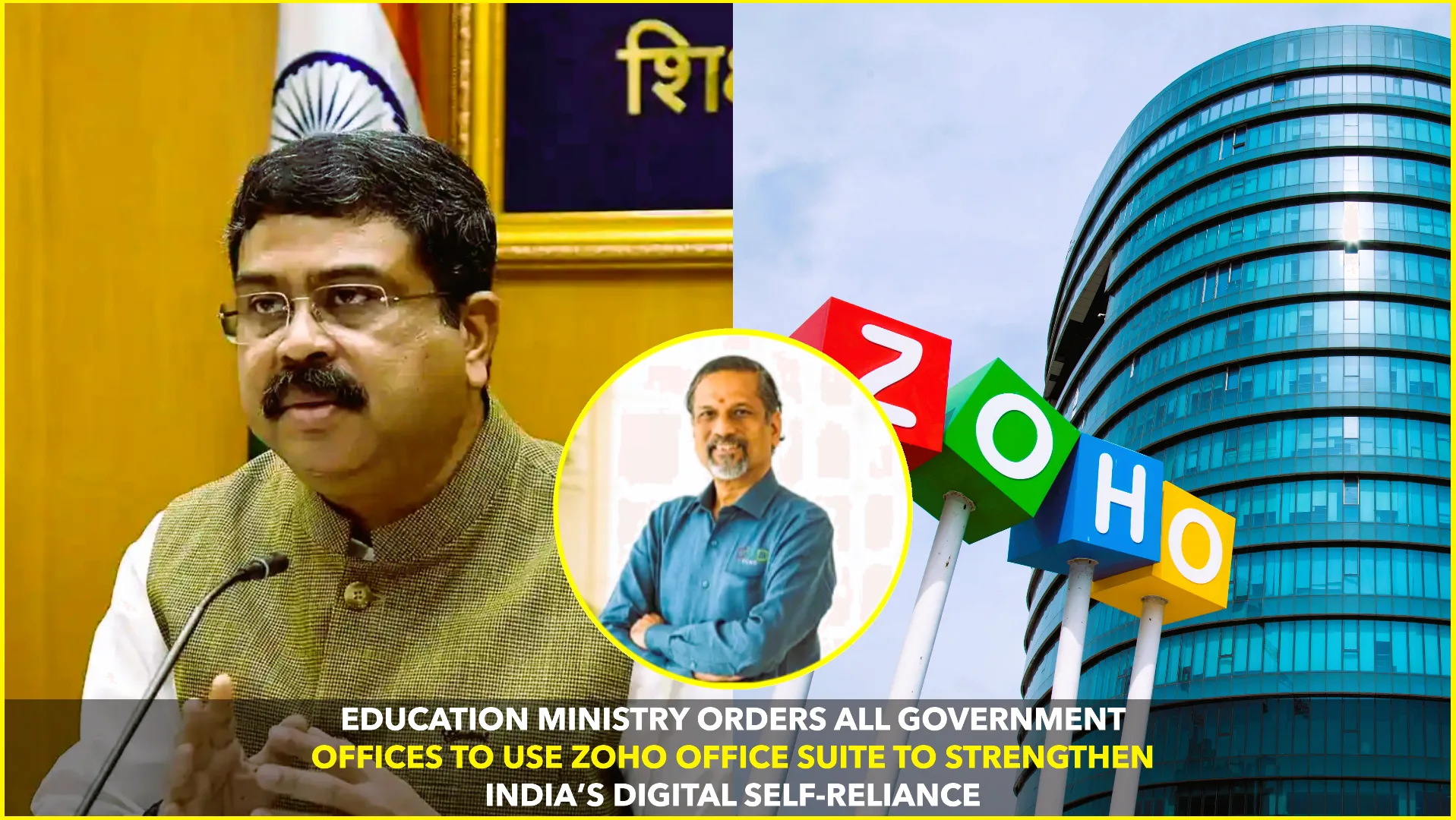Agnikul’s Bold Step Toward Reusability
Chennai-based Agnikul Cosmos has revealed plans to develop a fully reusable rocket, a move that could transform India’s private space sector. The company believes that making rockets recoverable and fly again will drastically cut launch costs and speed up turnaround times, creating new opportunities for commercial satellite operators (India Today).
Inspired by SpaceX’s Falcon 9, Agnikul is betting on technologies such as 3D-printed engines, semi-cryogenic propulsion, and modular architecture. These innovations will allow the company to attempt booster recovery and re-flight for small-satellite missions, a market that’s rapidly growing worldwide.
The Vision Behind Agnikul
Founded in 2017 by Srinath Ravichandran and Moin SPM, Agnikul Cosmos set out to democratize access to space. Their flagship rocket, Agnibaan, is designed as a customizable, two-stage launch vehicle capable of carrying payloads of up to 300 kg to low Earth orbit. To prove its technology, the startup carried out the Agnibaan SOrTeD suborbital test earlier this year, validating a fully 3D-printed engine — the first of its kind globally (Reuters).
The reusable version of Agnibaan will go a step further, aiming to recover its first stage after launch. Achieving this would place India among the handful of countries pursuing reusable orbital rockets.
Why Reusability Matters
The economics of space launches are heavily tied to the cost of hardware. In expendable rockets, the expensive first stage is discarded after one use. By contrast, reusability allows multiple flights with the same booster, lowering costs and increasing launch frequency.
Agnikul’s leadership argues that this will not only give India a competitive edge but also make launches more accessible for global satellite makers. The company envisions India as a hub for low-cost, quick-turnaround launches, particularly for Earth observation, communication, and navigation satellites (Business Standard).
Recent Milestones
To support this ambitious roadmap, Agnikul has been scaling its infrastructure and intellectual property:
- 3D-Printed Rocket Engines: The startup created the world’s largest single-piece 3D-printed Inconel engine, securing patents in India, Europe, and the US (Times of India).
- Manufacturing Facility: It inaugurated a large-format additive manufacturing center in Chennai to speed up production of rocket engines and structural components (Economic Times).
- Regional Expansion: The company is setting up a rocket assembly and test hub in Tuticorin, Tamil Nadu, as part of a ₹5,600-crore investment cluster for defense and space technologies (Times of India – Chennai).
Challenges on the Horizon
While the roadmap is bold, the technical hurdles are equally significant:
- Recovery Systems: Designing landing or retrieval systems that ensure boosters survive reentry.
- Thermal Protection: Protecting components from extreme heating during descent.
- Regulatory Environment: Working with IN-SPACe and ISRO to ensure safety and compliance.
- Commercial Scaling: Proving reusability not just once, but repeatedly, while keeping refurbishment costs low.
If successful, Agnikul would not only cut costs but also show that an Indian startup can solve one of spaceflight’s toughest challenges.
India’s Rising Private Space Industry
India’s space ecosystem is undergoing a quiet revolution. With government reforms allowing private participation, startups like Agnikul, Skyroot Aerospace, and Pixxel are driving innovation in launch systems, satellites, and imaging. Experts believe that if Agnikul’s reusability bet pays off, it could propel India into a new league of commercial launch providers, competing with companies in the US, Europe, and China.
As the global market for small-satellite launches is set to exceed $60 billion by 2030, India’s share could grow sharply — provided companies like Agnikul execute on their promises.
In short, Agnikul’s fully reusable rocket plan is more than a technical milestone. It represents India’s growing ambition to not just participate in, but shape, the future of global spaceflight.










